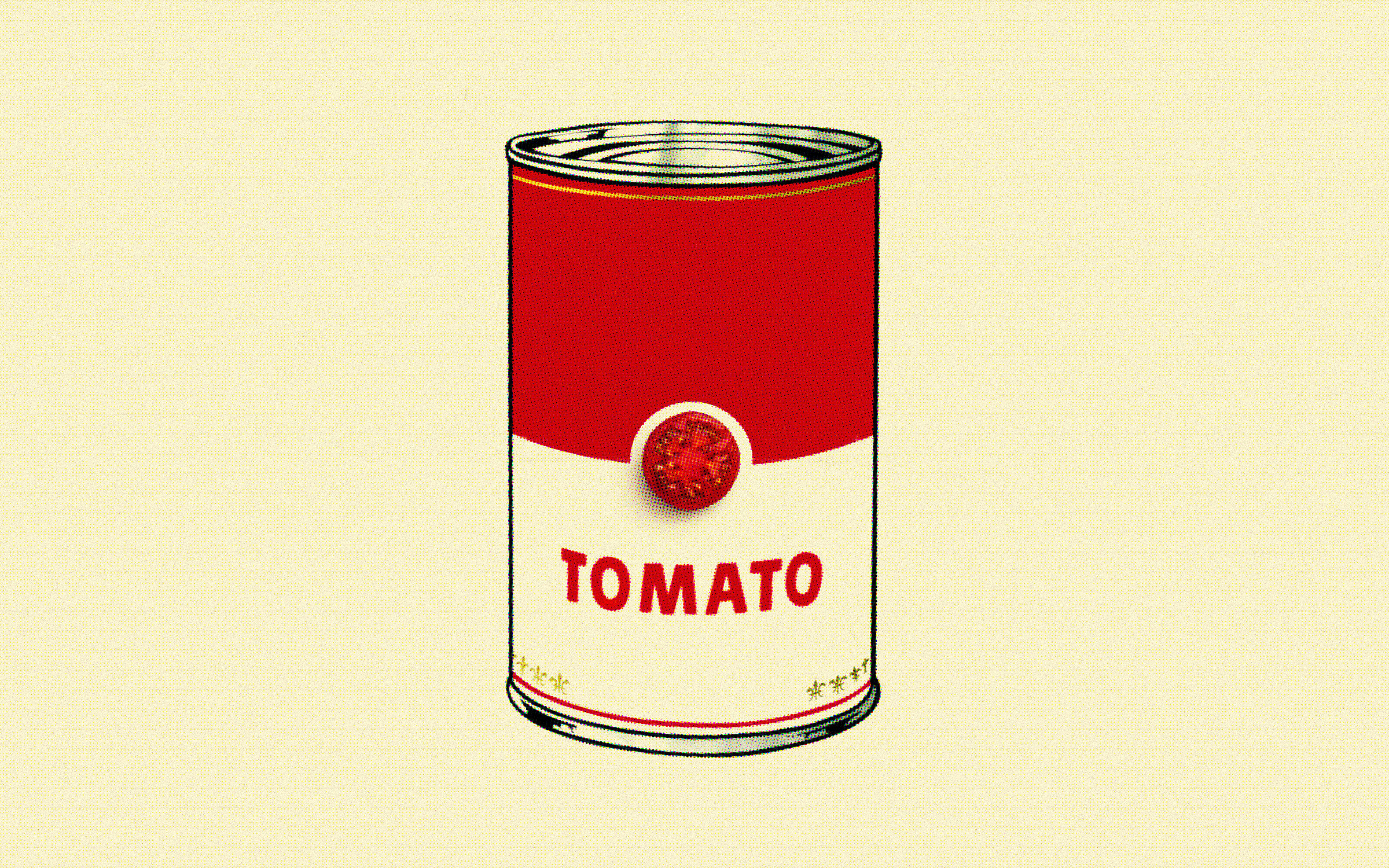The New Gastronome
Tomatoes Can!
… or can they?!
by Anicée Defrance
by Anicée Defrance

Who has not engaged in a conversation about whether a tomato is a fruit or a vegetable? Or, on its paradoxical role in Italy’s traditional cuisine, originating from South America and cultivated by the Aztecs before the Spaniards invaded in the early 1500s. Perhaps their place of origin is a less frequent topic, but as a student studying ‘gastronomy’ in Italy, these discussions around the tomato are common.
I’ve understood that it is a fruit high in glutamic acids (the compound responsible for the umami taste) and low in sugar, something that is more common in meat than in fruit. This seems to help explain its presence in savoury dishes. And this is definitely a fun fact to tell your friends next time someone cleverly interrupts to inform everyone that a tomato is, in fact, a fruit. But I believe there are many more debates that a tomato can trigger, especially the ones in the tin cans we all have on our shelves.
In his recent book ‘L’Empire de L’or Rouge’, Jean-Batiste Malet seeks to reveal the complex and shameful situation we face in regards to tomato production today and I can recommend it as an easy and informative read. He starts his book by having to justify why he is writing about the tomato and even worse … the industrial tomato. From the start, the topic had my attention and I was disappointed as I sat through classes that mentioned the history and biology of tomatoes but ignored their present-day cultivation. When we speak about tomatoes, why don’t we speak about the women and adolescent girls who pick this fruit in Xinjiang, an autonomous territory in China? Having no workers’ rights, they leave work with sunburnt skin and a layer of powdery white pesticides inflaming their hands and wrists. These tomatoes end up in various processed foods by Heinz, Campbell Soup or Nestlé … the usual culprits. We also don’t talk about the fact that Chinese tomatoes can be found in our favourite Italian brands, Petti, Russo and Cirio, despite their ‘Made in Italy’ labels. That’s not quite fair to Petti, Russo and Cirio, some of their tomatoes come from Foggia in Puglia, where refugees and migrants from Africa and Eastern Europe are exploited by caporali, Italy’s agro mafia.
Malet is thorough in his reporting and also discusses the newly mechanised mass production alternative to tomato picking found in California. This leaves you questioning whether monocultures requiring minimum human intervention is a viable alternative. Should economies of scale be the sole guiding principle in agriculture?
Just when you thought our tomato situation couldn’t get bleaker, Malet explores where the Chinese and Italian tomato surplus goes: West Africa. Amongst the barrels sent there, some contain illegal out-of-date tomato concentrate. The industry refers to this as ‘black ink’, alluding to the consistency of oxidised and rotten pulp. This will be mixed with starch or soy fibres along with red food colouring and is sold to Ghanaians as the hygienic product of a modern world, when in fact the contents may not be safe to eat. Individual cans are sold by Gino, Africa’s number one canned tomato brand based in China, opened with the help of Russo’s founder. In Ghana, these extra cheap imports have made their local tomato industry all but disappear. Back in Italy, you might have the privilege to access the cans that have exploited Ghanian migrants in Puglia, but that at least contain tomato pulp which has not yet perished. Through his journalistic style, Malet reveals these horrors and more by going back and forth in time and location, almost leaving you dizzy. You finish the book knowing you will never trust a can of tomatoes again, but you also know that they are unavoidable.
I understand that when we eat our steaming plate of pasta al ragu we want to enjoy it and relax, not having to talk or think about what truly lies within our bowl. But why do we find it easier to discuss the broader issues of greenhouse gases and zero waste, which have no direct human faces, than the way people and the environment are being exploited to produce what we consume every day. Canned goods are usually considered unhealthy, ignored by the gastronomic world and have become too banal to trigger any thoughts in their daily consumers. Perhaps we also fail to engage with these ideas because the solutions to such issues are far from being straightforward. The answer to problematic tomatoes cannot simply be “go vegan”.
I myself have no clear solution to give, and neither does Malet. But doesn’t this suggest that we need to think about them more? Maybe next time someone mentions that a tomato is a fruit, or when you mindlessly open a can of tomato pulp and let it pour out onto your hot pan, try to talk about, or merely think about, how this product has arrived in your hands. Acknowledging something as simple as a can of tomatoes may be the first step required to prompt greater change.
The opinions expressed in the articles of this magazine do not necessarily represent the views of
The New Gastronome and The University of Gastronomic Sciences of Pollenzo.